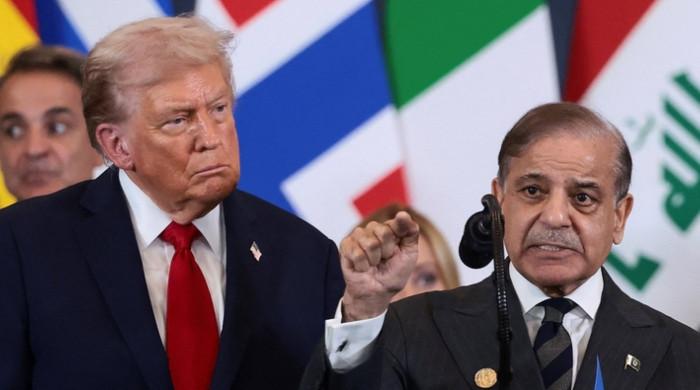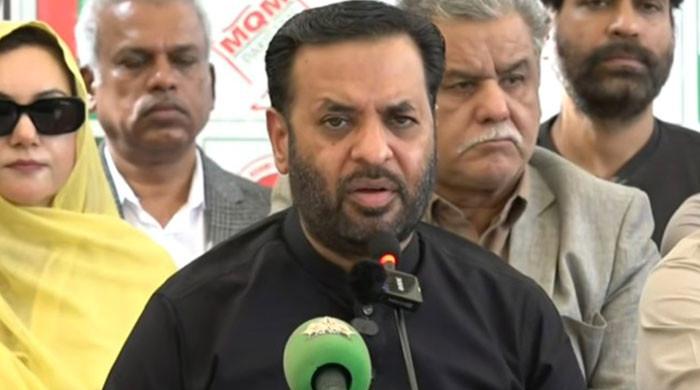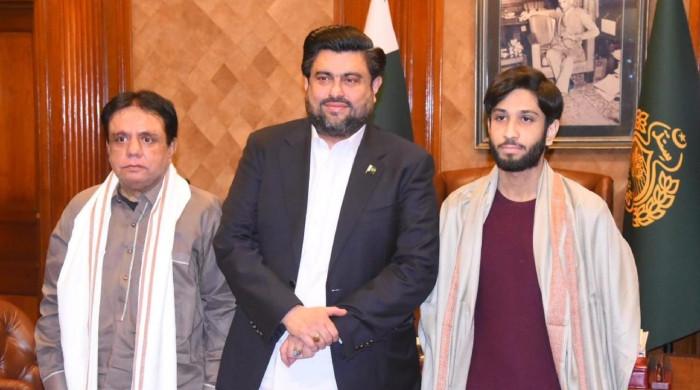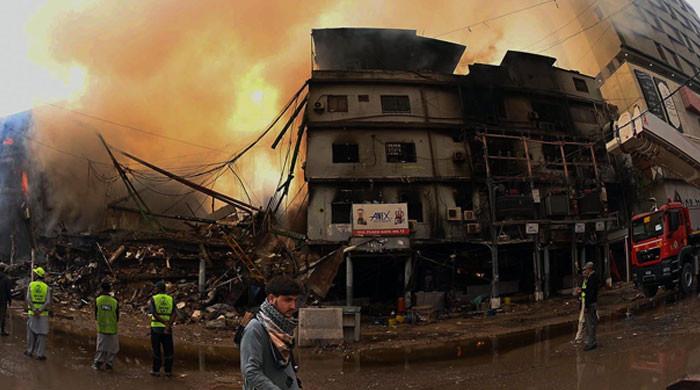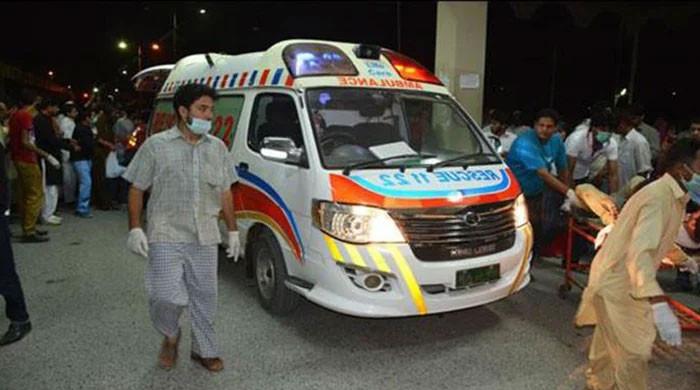ECP has neither rejected nor approved EVMs: Shibli Faraz
ECP's 27 out of 37 points are not related to technology being used in EVM, they're about its capacity to use it: Faraz
September 08, 2021
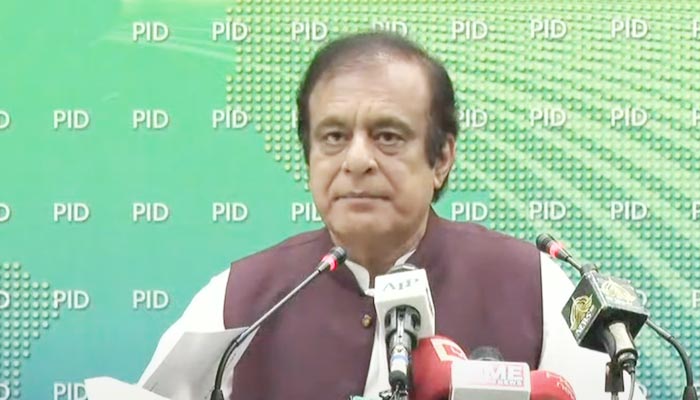
- Shibli Faraz calls on Opposition to test EVMs.
- He says 27 out of 37 points raised by ECP are not related to technology.
- The EVMs do not need electricity to run, Faraz adds.
The Election Commission of Pakistan (ECP) has neither rejected the electronic voting machines (EVMs) nor approved it, Minister for Science and Technology Shibli Faraz said Wednesday.
The federal minister, addressing a press conference in Islamabad, said people who had won elections through rigging do not want the electronic voting machines to be used during polls.
There has been a heated debate between the government, the Opposition, and other stakeholders over the use of EVMs, with the Centre claiming it is a way forward to make the elections in the country transparent.
Faraz mentioned the ECP had sent a 37-point objection letter to the government, and in them, as many as 27 points were not related to EVMs — they were about the ECP's capacity to use them.
"Only 10 points were in direct objection to the electronic voting machine [...] 27 other points relate to the election commission's capacity to use them," he said.
The federal minister said ECP's technical team held its first meeting over the EVMs, and the Ministry of Science and Technology has provided them with almost all the reports they had sought — the remaining reports will be sent to them in the coming days.
"We will conduct technologically-backed elections in 2023 [...] and for the first time there we will hold free and fair elections in the country. The government has fulfilled the election commission's requirements in this regard so far."
The federal minister said Pakistan could locally produce a thousand machines daily, and within six months, the government could manufacture enough machines to hold the elections across the country.
"Reports of the machines costing Rs150 billion are false."
The federal minister said within two years, officials can be trained for using electronic voting machines. "It is the ECP's job to train people, not the government — the government only manufactures machines and makes machines."
Proposal to Opposition
Faraz mentioned the government planned to roll out the EVMs for 60% population of the country — the youth. "The youth have praised the government's initiative to introduce EVMs."
Calling on the Opposition — which has repeatedly rejected the government's bids to introduce electoral reforms — Shibli said it should have its best technical experts check the machines.
The federal minister also lashed out at parties opposing the EVMs and said it is not possible to get the results without something being tested first, as he claimed an issue had been made about the EVMs, which was baseless.
The minister further claimed the EVMs do not need electricity to run as its battery can run for 24 hours.
EVMs 'cannot stop rigging'
The federal minister's presser comes a day after the ECP had said EVMs could not stop rigging in elections, as it rejected the government's proposal to use them during polls.
"The EVMs cannot be used to conduct free and transparent elections in line with the Constitution," the ECP had said in a document submitted to the Senate Standing Committee on Parliamentary Affairs.
The ECP, explaining why the EVMs could not stop rigging, had said it can be hacked, the machine can be easily tampered with, and the software can be easily changed.
The machine can misuse state power, and it cannot prevent horse-trading, the ECP had maintained.
"There is no secrecy of the voter in the electronic voting machine; there is a lack of transparency; testing time before the next general election is less; stakeholders are not on board; people have not been taken into confidence," the ECP had said, as it raised its objections.
The ECP had highlighted it did not have enough funding to roll out the machines throughout the country, and it also asked the government how can it be sure of the machine's transparency.






